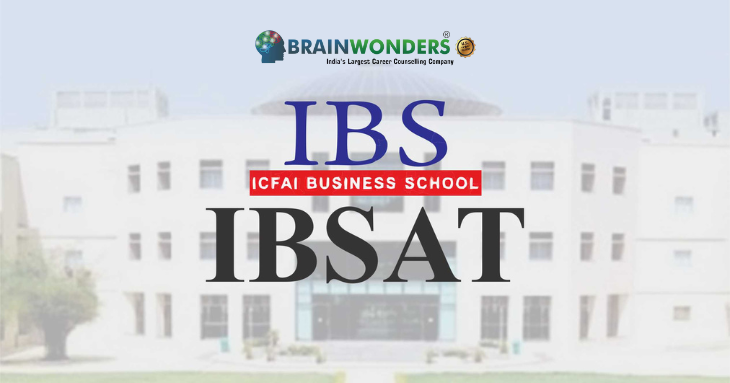

Take Brainwonders Career Test and make the right decisions for your college and course ahead
Let your unique personality, strengths, and traits guide to make the best decdision of your life!
Blog
24 May,2023 | By Brainwonders

The study of biology entails both a physical and figurative dissection of life itself. Decoding the beauty that pervades all species while also pushing the boundaries of scientific knowledge is the goal of this research. Are you likewise intrigued by the biological sciences and wish to study it deeper. The information you want about biology and a career in biology may be found right here.
Biology, simply expressed, is about understanding how living creatures operate. Evolution, structure, and function are all studied in depth by biologists. The key is to learn and gather the information which may then be extended and pirouetted ahead into a range of professional alternatives. With the advent of technology, information consolidation and diffusion have grown extraordinarily complex. Everything that has lived in this world may be studied under Biology.
Most jobs in biology concentrate on a specific subset rather than trying to be all-encompassing; nonetheless, this is certainly feasible. Modern biology is a large and diverse science, comprising several divisions and sub-disciplines. We'll focus on some of the more well-known branches of biology instead of attempting to include every conceivable job path that stems from the study of biology. The graphic below seeks to show the numerous sides of Biology. Therefore a job in biology might assist you to investigate deeper this topic.
Recommneded Read: Courses in Biology After 12th Except MBBS
Biology is divided into many divisions for convenience of study, however, all of the subcategories are related by basic principles. Thus, although it is customary to divide the study of plants (botany) from the study of animals (zoology), and the study of organisms' structure (morphology) from their activity (physiology), all living things have key biological processes in common, such as multiple modes of reproduction, cell division, and genetic material transfer.
Biology, as a discipline, assists us in comprehending the living world and the many species (including humans) that operate, develop, and interact. People's quality of life has increased as a result of advances in medicine, agriculture, biotechnology, and a range of other biological domains. Genetics and evolution study provides insight into the past and may help influence the future, while ecology and conservation research informs how we can conserve the planet's valuable biodiversity.
Biology occupations may lead you to research living creatures to help build biological knowledge and awareness of living processes for a variety of diverse reasons, including treatment of sickness and preserving the natural environment.
A wide variety of career options abound in the discipline of biology, which is itself a huge ocean of possibilities. To produce anything out of biology, one has to have their fundamentals clear. This implies one has to take science with the specification of Biology in their 10+2 schooling.
Recommended Read: Diploma/Degree Courses after 12th Arts: Scope, Career, Jobs
The first choice that comes to anyone's mind when you speak biology is that of a doctor. For someone with a degree in biology, being a doctor is the ideal career path. MBBS is the essential degree to obtain after class 12 to become a doctor. Further, depending on the interests, one might take a postgraduate degree to become a specialist.
A biologist is a scientist who specialises in the study of living organisms. They specialised in examining the live creature they are interested in. Botanists and zoologists both fall under this group, as they are both concerned with plants and animals, respectively. Zoos, parks, and sanctuaries all employ biologists as part of their environmental conservation efforts. It is necessary to earn undergraduate and graduate degrees in Botany, Zoology, or Microbiology to become a biologist.)
Biomedical engineers are people who create solutions for medical issues by developing equipment or artificial organs to be substituted within the body. Being a biomedical engineer could be easier with a four-year degree. These persons are engaged in different government and commercial businesses, mainly in manufacturing or research departments. An undergraduate and graduate degree in Biomedical Engineering is required of a biomedical engineer.
Recommended Read:
Environmental scientists study the environment in the interest of plants, animals and the living creatures that form them to identify solutions to preserve them. They research pollution and other issues that are detrimental to the well-being of the environment t control them by proposing remedies and eco-friendly ways. After earning a bachelor's degree in environmental science, pursuing a master's or doctoral degree in the field may assist further your career as an environmental scientist.
Researchers in the field of food science conduct investigations to better understand how food is processed and how to keep it safe for consumption. Students may get a Bachelor of Science (B.Sc.) in Food Science and Technology as an undergraduate degree. Food scientists are employed in agencies such as FSAI (Food Safety Authority of India) and ISI (Indian Standards Institute) (Indian Standards Institute).
When it comes to creating vaccines and other treatments that benefit human health, microbiologists do just that: they study bacteria. A bachelor's degree will help you start your academic path in the subject. If you want to work as a professional microbiologist, you'll likely require a doctorate.
Nurses serve as first responders for patients in need of medical assistance because of their immediate availability and short response times. As well as assisting physicians, paramedics play an important role in the healthcare system. A nursing profession requires a Bachelor of Science in Nursing (BScN) degree.
A biology degree will provide you with numerous transferable abilities that are sought-after in the job, whether that position is within a scientific area or not.
Visit: DMIT Test Online, Dermatoglyphics Multiple Intelligence Test - Brainwonders
To put it another way, the field of biotechnology uses scientific concepts to create and improve products in a wide range of industries including consumer goods, technology, as well as business and manufacturing. Focuses are generally within agriculture, food science and medicine, where biotechnologists might be engaged in genetic engineering, medication development and advancing medical technologies such as nanotechnology.
As a forensic scientist, you’ll be working inside the legal sector, alongside police departments or law enforcement organisations, to examine and analyse evidence acquired in criminal investigations. Many forensic scientists specialise in certain areas such as forensic odontology (dental evidence), forensic anthropology (the investigation human of decomposition), crime scene inspection and medical examiner responsibilities (requiring more education) (requiring further study).
Biology professions in government will require working closely with government officials and policymakers to advise on and produce new laws for emerging areas such as biomedical research and environmental control. Your duty will be to guarantee that reforms to the legal system are implemented based on good research. You may work at the regional or national level as a political adviser for scientific organisations and agencies or not-for-profit businesses. You may also function as a representative for a political body or organisation.
An enormously lucrative business, pharmaceuticals depend heavily on biologists to conduct research, create new drugs, and get them ready for the market. Other commercial businesses where biologists may find work include scientific services firms, marketing, sales and public relations.
Last but not least, what can you do with a degree in biology if you're also interested in the media? You may be shocked to learn that media and journalism professions with a biology degree are very wide-ranging as well. Your biology degree may help you break into the publishing or journalism sector as a science writer or work on a scientific publication such as a journal, magazine, website, TV show or film. You'll be able to help the general public learn more about current biological concerns if you take on one of these positions.
If you want to be constantly stumbling across knowledge and find it intriguing and invigorating, you may select between Research and Education. As a result, you'll be at the forefront of cutting-edge scientific developments. Research is frequently done at universities or labs, and it requires a higher level of education in a more specific discipline, such as medicine, nutrition, or animal science. As a result, if you are enthusiastic about biology, a career in biology might be the finest decision you have ever made.
Today, there are many course possibilities for both learning and researching, and we could only cover a portion of the rising number of options in Biology in this post. To begin, discover your interests by reading the course descriptions, and then determine which topic of study you want to pursue. If you are yet confused bout what subfields to choose, take the Brainwonders Aptitude interest test and the Personality test to find out what career will be best suited for you. Brainwonders also provides a one to one Career Counselling session that will help you to understand yourself and take a firm decision regarding your career.
Take Brainwonders Career Test and make the right decisions for your college and course ahead



,_Syllabus,_Pattern,_Old_Question_Papers.png)

